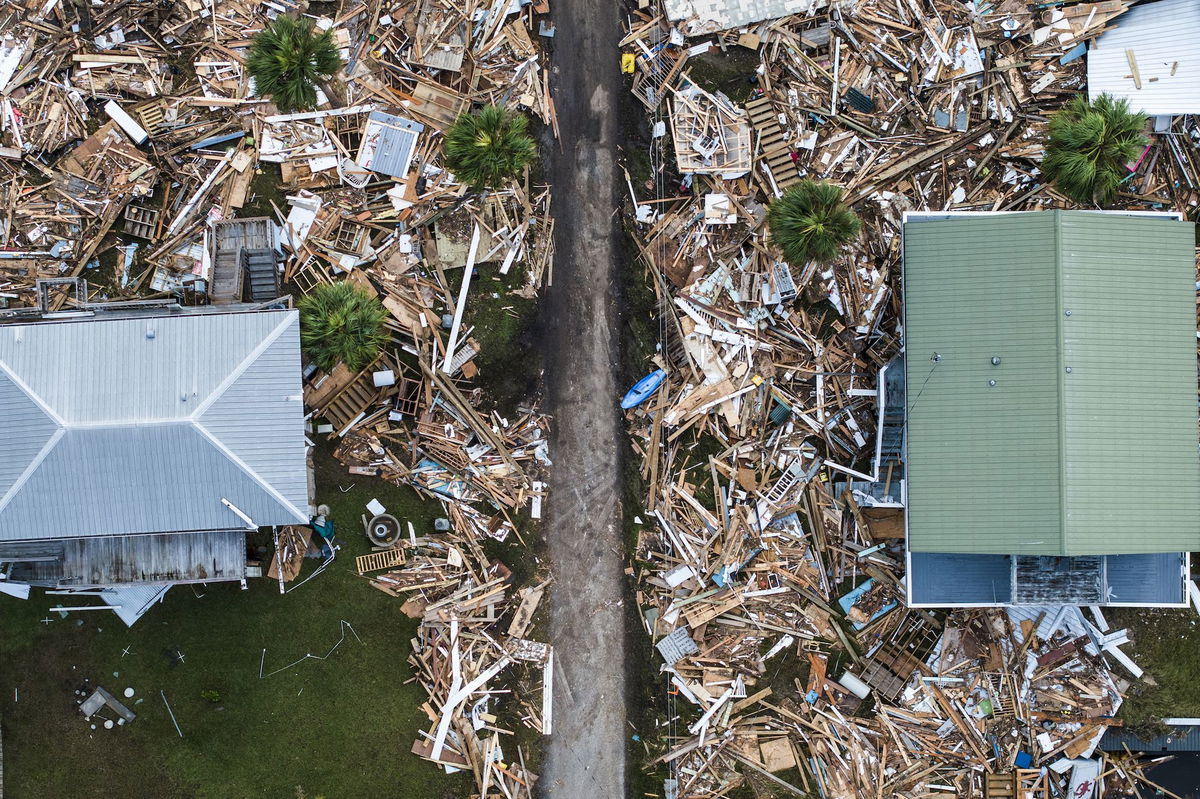Helene was supercharged by ultra-warm water made up to 500 times more likely by global warming, study finds

Baker Jarvis
By Rachel Ramirez, CNN
(CNN) — The exceptionally warm water of the Gulf of Mexico that supercharged deadly Helene last month was made up to 500 times more likely by human-caused climate change, which also ramped up the hurricane’s wind and rain, according to a new scientific analysis.
Helene, which made landfall in Florida as a deadly Category 4 hurricane at the end of September, carved a 500-mile path of destruction across six states, causing catastrophic flooding and killing more than 230 people.
Warm oceans provide a huge source of energy for storms to strengthen and grow, and the water Helene passed over before making landfall was around 3.6 degrees Fahrenheit above average.
These ultra-warm ocean temperatures were made between 200 and 500 times more likely by climate change, driven by humans burning fossil fuels, according to the World Weather Attribution, a network of scientists that calculates the role of climate change in extreme weather events using real world data and climate models.
Climate change also worsened the extreme wind and torrential rain unleashed by Helene, making wind speeds on the Florida coast 11% more intense and increasing rainfall by about 10%, according to the analysis published Wednesday.
This additional rainfall translated to “massive damages,” the study found. It created “apocalyptic scenes,” from Florida to the Southern Appalachians, said Ben Clarke, a study author and researcher at Imperial College London’s Grantham Institute.
Hurricanes as intense as Helene are now about 2.5 times more likely in the region, the study found. Where they were once expected every 130 years on average, they can now be expected about once every 53 years.
“Climate change is a total game-changer for hurricanes like Helene,” Clarke said, adding, “if humans continue to burn fossil fuels, the US will face even more destructive hurricanes.”
Wednesday’s study comes as Hurricane Milton is expected to make landfall as a major hurricane on Florida’s Gulf Coast, causing disastrous impacts less than two weeks after Helene.
“The heat that human activities are adding to the atmosphere and oceans is like steroids for hurricanes,” said Bernadette Woods Placky, a study author and chief meteorologist at nonprofit research group Climate Central.
More than 90% of global warming over the past several decades has taken place in oceans. Hurricanes are taking full advantage of that extra energy. Rapid intensification, when a hurricane’s wind speed increases by at least 35 mph within 24 hours, has now become more common due to climate change.
Helene rapidly intensified from a Category 2 to a Category 4 hurricane just a few hours before slamming into Florida’s Big Bend region at the end of September.
On Monday, Hurricane Milton became one of the most rapidly intensifying storms on record as it exploded into a Category 5 hurricane in the Gulf of Mexico.
The impacts of these supercharged storms are extensive. Western North Carolina, hundreds of miles from the coast, experienced the deadliest impacts of Helene, with more than 100 people losing their lives.
“Helene is a tragic reminder that it is not just coastal areas that are vulnerable,” said Gabriel Vecchi, co-author of the study and professor of geosciences at Princeton University. “Wetter and stronger storms pose a growing threat far inland.”
Wednesday’s report follows two earlier climate analyses published last week, which also concluded fossil fuel pollution worsened Helene’s rainfall, exacerbating what would have already been a disastrous situation.
Friederike Otto, WWA lead and senior lecturer in climate science at Imperial College London, said future hurricane impacts could still be minimized if the world rapidly replaces fossil fuels with renewable energy.
“Americans shouldn’t have to fear hurricanes more violent than Helene,” Otto said, adding, “we need leaders who are honest about the fact that addressing climate change is inevitable if human rights are to count for something, and ensuring future generations do not have to live in a world of climate chaos.”
The-CNN-Wire
™ & © 2024 Cable News Network, Inc., a Warner Bros. Discovery Company. All rights reserved.
CNN Meteorologist Brandon Miller contributed to this report.